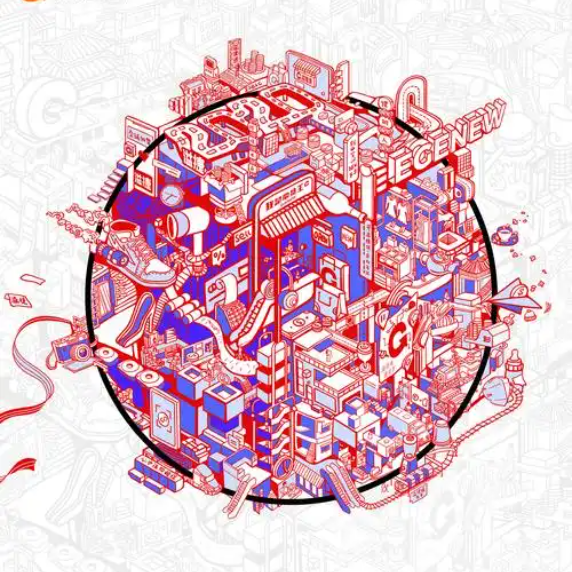Yiwu, a city in Zhejiang Province, China, is renowned as the world’s largest wholesale market for small commodities. With over 75,000 booths and products ranging from toys to textiles, Yiwu International Trade City attracts foreign businessmen from across the globe. Navigating this expansive market can be both exciting and challenging, especially for newcomers. Here’s a comprehensive guide to understanding how foreign businessmen source goods in Yiwu.
Why Yiwu?
Yiwu’s appeal lies in its vast selection of products, competitive pricing, and flexible ordering options. The market allows buyers to source items in smaller quantities compared to traditional wholesale markets, making it ideal for small and medium-sized businesses. Additionally, Yiwu is home to a well-established logistics network, ensuring efficient global shipping.
Steps to Buy Goods in Yiwu Market
1. Preparation Before Arrival
Foreign businessmen often begin their journey to Yiwu with thorough preparation:
- Market Research: Buyers research the types of products they need and the approximate pricing. Many consult online resources, contact sourcing agents, or visit Yiwu Market’s digital platforms.
- Visa and Travel Arrangements: Yiwu is easily accessible via airports in Hangzhou, Shanghai, or Guangzhou. Many visitors also take advantage of the convenient high-speed rail network.
- Budget and Order Plan: Having a clear understanding of your budget and order requirements helps streamline the sourcing process.
2. Choosing the Right Agent
While some experienced buyers navigate Yiwu independently, many hire local sourcing agents to ease communication and negotiation. Agents provide a range of services:
- Translating during vendor meetings
- Assisting in price negotiations
- Inspecting product quality
- Coordinating logistics and shipping
Yiwu-based companies, such as Hong Kong Bairuida International Trade, have established themselves as trusted partners for many foreign buyers. Their expertise in the market ensures seamless procurement.
3. Exploring the Market
Yiwu International Trade City spans five districts, each specializing in different product categories. Buyers should:
- Plan Visits by District: Research which district houses the products you’re interested in.
- Sample Products: Vendors display samples, allowing buyers to inspect quality and request customization if needed.
- Negotiate Prices: Bargaining is common, and prices can often be reduced for bulk purchases.
4. Placing Orders
Once a buyer selects products, they can place orders directly with vendors. Here’s how the process typically works:
- Minimum Order Quantity (MOQ): Most vendors have an MOQ, which can vary depending on the product.
- Custom Orders: Many vendors offer customization for packaging, branding, or product specifications.
- Deposit Payment: A deposit, usually 30%-50%, is required to confirm orders.
5. Quality Control
To ensure the ordered goods meet expectations:
- Factory Visits: Some buyers visit factories for inspection.
- Third-Party Inspection: Buyers often rely on agents or third-party companies to inspect goods before shipment.
6. Logistics and Shipping
Yiwu’s logistics network supports global shipping via air, sea, or rail. Buyers work with freight forwarders to arrange shipping, ensuring customs clearance and delivery timelines are met. Many Yiwu suppliers offer consolidated shipping services, reducing costs for buyers with smaller orders.
Tips for Success in Yiwu Market
- Build Relationships: Cultivating good relationships with vendors can lead to better deals and improved service.
- Stay Informed: Market trends and product availability can change, so staying updated is crucial.
- Beware of Scams: Work with verified suppliers and agents to avoid fraudulent transactions.
Challenges and How to Overcome Them
While Yiwu is a treasure trove for international buyers, challenges include:
- Language Barriers: Hiring a translator or agent can overcome communication gaps.
- Quality Variations: Always inspect products or hire a trusted agent to ensure quality consistency.
- Cultural Differences: Understanding Chinese business etiquette helps in building trust with suppliers.
Conclusion
Yiwu Market remains a dynamic hub for global trade, offering foreign businessmen unparalleled opportunities to source diverse products at competitive prices. By planning meticulously, leveraging local expertise, and maintaining open communication with vendors, buyers can navigate this sprawling marketplace with ease and efficiency. Whether you’re a seasoned trader or a first-time visitor, Yiwu promises a rewarding experience for anyone seeking to expand their business horizons.





Recent Comments